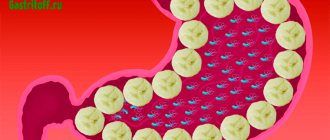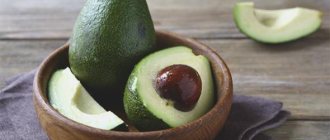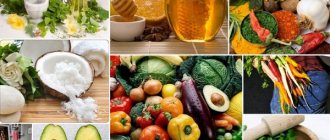Nutritionists do not recommend including fruits in the diet of a person suffering from diarrhea, so as not to provoke fermentation in the irritable intestines. However, when you have diarrhea, banana can be used not only as a dessert, but also as a medicine. This fruit can be consumed even in cases of acute inflammation of the mucous membrane of the stomach and intestines. It is not contraindicated for either adults or children, and is recommended for inclusion in the diet of patients suffering from various pathologies of the gastrointestinal tract.
Beneficial properties of the fruit
Why do doctors recommend eating bananas when you have diarrhea? It's all about the fibrous structure. The body quickly absorbs the fruit, and its fibrous structure and fiber help hold liquid feces together.
Banana helps cells recover faster. The fruit stimulates the normalization of the intestines and stomach. The composition includes useful substances: zinc, manganese, sodium, phosphorus, potassium, iron, calcium.
The pulp is filled with vitamins: B, C, E, K and pectins necessary for the body. They have the ability to prevent large loss of fluid by absorbing excess, and normalize water balance, since the fruit consists mostly of water. Removes harmful toxins from the stomach, leaving beneficial substances.
Tannins from fruit fibers have an astringent effect. This quality sets it apart from other fresh fruits. Amino acid and inulin have a beneficial effect on the microflora of internal organs. Therefore, bananas are recommended for intestinal upset, which will help eliminate alarming symptoms.
The beneficial property of the fruit is that it is hypoallergenic. Children and adults are allowed to eat.
For diarrhea, the daily norm is 2 pcs. Loose stools flush potassium from the body. The pulp of the fruit can restore water balance and save the body from dehydration. Two golden treats will completely restore your potassium supply.
What's in bananas?
Bananas are a fairly high-calorie fruit - 96 kcal per 100 g, but they have an average glycemic index of 50. A healthy balance for humans is achieved through nutritious protein, dietary fiber and easily digestible sugars. The feeling of fullness comes quickly and lasts a long time.
The pulp of the fruit contains:
- vitamins: C, K, E, PP, group B;
- macroelements: potassium, calcium, magnesium, phosphorus, sodium;
- trace elements: iron, fluorine, manganese, selenium;
- pectins, tannins, enzymes;
- catecholamines, amino acid tryptophan;
- organic acids.
Banana is valuable for the human diet as a product rich in vitamins and mineral compounds. It is the lack of nutrients that causes the body to weaken in severe diseases and makes treatment difficult.
Banana has virtually no contraindications. It is included in therapeutic nutrition for diseases of the heart and blood vessels, gastrointestinal ulcers, and nervous disorders. Recommended in complementary foods for infants.
Can you eat bananas if you have diarrhea? Yes, at the recommended rate the product does not cause complications. Helps to cope with stool disorders, restore the body and improve the mood of the patient.
https://youtu.be/6N80OzQxCNA
Who are the fruits contraindicated for?
Not everyone can use banana as a remedy for diarrhea and eat it. If diseases are present: thrombophlebitis, cholecystitis, previous heart attack or stroke, the fruit is contraindicated.
The golden delicacy is high in calories. It is not recommended for use by people suffering from obesity and varicose veins.
Frequently eating large amounts of treats will lead to excess weight gain and gas formation in the intestines. Bananas are prohibited for people with diabetes and stomach ulcers. Substances contained in the fruit impede the flow of bile. Patients with liver and pancreas disease should not eat it either. There are no restrictions for healthy people.
Banana is a healthy fruit, but it is not recommended to offer it fresh to a child until he reaches 9 months of age. Bananas may cause your child to become allergic. Pediatricians believe that early feeding is possible from 6 months. They offer half a spoon of banana puree, repeating complementary feeding after 10 days.
Is it allowed to use if you have gastritis?
True, a reservation should be made for people who tend to exaggerate the nutritional and medicinal value of fruits. The fact that banana fruits are not harmful for gastritis does not mean that a person can eat them all day long - for example, go on a banana diet. Yes, and there are still certain features of using this fruit. Let's consider the question of whether bananas are ok for gastritis, more broadly.
Slightly unripe bananas will be useful, as they contain special starch.
For diseases accompanied by high acidity
People suffering from gastritis often ask if they can eat bananas if they have gastritis with high acidity of gastric juice. The answer to this question is also positive, but requires clarification:
- These fruits should be eaten in moderation (no more than 800 g per day);
- It is advisable to eat the next portion 30 minutes before meals, so that the body has time to absorb all the beneficial components of the fruit before heavier food enters the stomach;
- After eating the fruit, you should not drink water or juice; any liquids dilute the gastric secretions, complicating the digestion process; it is better to drink them before eating the banana.
It is necessary to take into account the individual susceptibility of the body to these fruits and, if they provoke bloating or belching, then it is better to eat them 2 hours after eating.
For gastric erosion
Erosive gastritis, or stomach erosion, is also not an obstacle to eating sweet fruit if a person does not have individual intolerance. But even here you need to exercise moderation and not count on “banana treatment” for erosive gastritis.
Bananas are allowed for erosive gastritis, but they need to be eaten in portions and preferably separately from other food - that is, half an hour before or 2 hours after a meal.
It will take our body 30-40 minutes to digest this fruit, and within an hour it will be in the intestines. Therefore, we can answer the question in the affirmative, is it possible to eat bananas with stomach erosion. Another tip is to chew the fruit thoroughly, this will ease the work of your stomach and speed up the absorption of nutrients by your body.
In the atrophic form
Atrophic gastritis is considered a disease with a high risk of developing stomach cancer, so the diet for it must be strictly followed. Whether to eat bananas for atrophic gastritis is better to consult a doctor who is familiar with your problem and the extent of the disease in detail. Although most gastroenterologists see no reason to doubt whether bananas are okay for gastritis or not. For any form of inflammation of the gastric mucosa (gastritis), they are not contraindicated.
Section of the wall of the pyloric part of the stomach with atrophic gastritis
During exacerbation
Acute forms of gastric diseases, as a rule, are accompanied by such symptoms that patients do not even think about eating at this moment. But acute pain and dyspeptic disorders sooner or later pass, and then questions arise - what can the patient be fed, is it possible to eat bananas during an exacerbation of gastritis. Gastroenterologists say it is allowed, but after the attack of gastritis has subsided and little by little, chewing thoroughly. And under no circumstances should you drink it with any drinks. And also - preferably 2 hours after the main meal, and not immediately after eating.
Consumption of fruits by pregnant women
The fruit is recommended for pregnant women as a remedy for diarrhea. It will help a woman get rid of diarrhea and ease attacks of toxicosis. The pulp of the fruit gently envelops the walls of the stomach, which helps reduce attacks of vomiting. It blocks the absorption of harmful substances by the stomach, while simultaneously saturating the woman’s body with microelements and vitamins.
Endorphin in the fruit will help lift your mood. After bananas, a slight euphoria sets in and performance increases. But pregnant women need to be careful when eating fruit, especially in the last stages of pregnancy.
General recommendations
There are general recommendations for the use of treats by pregnant women:
- Eat fruit no more than twice a week.
- The fruit is taken at medium ripeness.
- Do not take rotten fruit for food.
- You should not consume fruit pulp with dairy products at the same time.
Why are bananas good for diarrhea?
With any diarrhea, the digestive functions of the stomach and intestines are preserved. Therefore, “hunger” and “water-tea” breaks, which were previously recommended by doctors, are irrelevant. The exception is grade 3 and 4 dehydration. In these cases, eating is allowed after replacing lost fluids and electrolytes (rehydration).
Recent studies have proven that abstaining from food further weakens the patient and slows down the recovery of the intestinal mucosa. But if you have stool disorders, you can’t eat everything.
Food should not increase intestinal motility or provoke fermentation and rotting. Proper nutrition for diarrhea complements the effect of medications and speeds up recovery. Bananas have a number of properties that will help get rid of diarrhea and prevent the body from weakening.
The organic acids of the berries have a bactericidal effect - they suppress the proliferation of infectious agents. This effect is complemented by pectins, which work as enterosorbents. They bind water in the digestive tract and swell. In the form of a foamy mass, they pass through the intestines, absorbing (adsorption) food debris, bacteria and toxins.
In the acidic environment of the digestive tract, calcium is split off from pectins. It has an anti-inflammatory effect on the mucous membranes of the gastrointestinal tract. Catecholamines have the same property.
Banana enzymes break down complex food components and stimulate the production of gluten by the intestinal mucosa. It envelops the internal cavities of the organ and forms a film that protects against the effects of toxins, bacteria and food debris.
Bananas help replenish potassium deficiency, which is primarily washed out during diarrhea. This prevents the risks of hypokalemia and complex disorders due to mineral imbalance.
Banana consumption by breastfeeding women
Many breastfeeding mothers are interested in whether a banana can stop diarrhea in a baby if he is breastfed.
Pediatricians are of the opinion that fruit, as a source of vitamins and microelements, should be present in the diet of nursing mothers.
In order for the golden treat to bring benefit and not harm, mothers must adhere to the following rules:
- Buy unripe, good fruits.
- The peel should be without external damage. Harmful microbes will enter through the holes.
- Before use, the brush with fruits should be washed.
- Eat up to two pieces a day, spreading them throughout the day in small portions.
If you follow these rules, you will be able to stop your baby's diarrhea without causing harm.
Benefits of banana for the body
When we talk about banana, we first of all focus on the fact that it helps the heart (due to its high potassium content). And we often forget that the fruit as a whole helps the body fight many ailments.
Banana consumption:
- Restores the functioning of the nervous system;
- Increases the level of the “happiness hormone” serotonin;
- Has an antiseptic and astringent effect;
- Regulates acid-base balance;
- Reduces swelling and the risk of anemia;
- Supports the functioning of the gastrointestinal tract and has a gentle effect on constipation;
- Improves the condition during PMS.
For a healthy body, eating bananas has no contraindications. In rare cases, the fruit causes allergies, bloating or colic.
It is worth limiting the amount of bananas in the diet for patients with diabetes, thrombophlebitis or varicose veins
Banana - a remedy for diarrhea in children
When using a banana for diarrhea in a child, mothers should follow simple recommendations.
- Before giving fruit to a child, it should be thoroughly washed to remove dust, dirt and, possibly, traces of insects sitting on the fruit. Then rinse with clean water.
- When used as a remedy for diarrhea, it is better to cut it into pieces and give it along with dry cookies or crackers throughout the day. This “sandwich” is much healthier than just the pulp of the fruit.
- When purchasing, inspect carefully. Do not buy fruits with mechanical or biological damage to the skin.
- Do not buy overripe fruits with signs of rotting. The color should be beautiful, golden.
- Children eat fruit treats well. It is better to alternate with porridges, preferably rice, and offer crackers.
How to choose quality bananas
Banana is far from a harmless product.
When storage and transportation conditions are violated, the fruits are affected by mold and fungi. The pulp begins to ferment, and small cracks form on the peel. Insects enter through the holes and lay eggs. If you eat a product with any of these lesions, you can be seriously poisoned. Bananas should be:
- streamlined shape, fruit length at least 15 cm;
- with matte and smooth skin;
- rich yellow color, greenish shades are acceptable.
Signs of fruit spoilage: large black spots, earthy skin color, traces of mechanical damage and the smell of fermentation. Small black dots are not a defect; they indicate that the banana is fully ripe. But you need to eat this product within 2 days.
Before use, wash the fruits under running water, preferably with a brush. If the banana peel is unnaturally shiny, it is better to keep the fruit in hot water for 3 minutes and then rinse with warm water.
Is it possible to get diarrhea from bananas? Yes, such a statement exists. Stool upset can occur when eating a spoiled product, indiscriminately combining it with other foods, or eating in excess of the norm. The fruits do not contain components that have an aggressive effect on the gastrointestinal tract and can cause diarrhea.
How to give to children
When a child has diarrhea, a banana should be finely chopped and given in small pieces. You can also put it on dry cookies (or crackers). If you have diarrhea, this dish will be useful.
Of course, you can purchase special anti-diarrhea and poisoning remedies at the pharmacy, after consulting with your doctor in advance, but if this is not possible, you can make do with improvised means. As we begin to sort through the food in the refrigerator, we wonder whether this or that can be eaten. In modern stores, the products presented on the shelves are rich in additives that can harm not only a sick body, but also a healthy one.
When shopping, pay attention to the expiration date and production date. Remember that almost all vegetables and fruits are prohibited for diarrhea, but the question of whether you can eat a banana if you have poisoning and diarrhea can be answered with confidence - this fruit will not only not harm your health, but will also help overcome this temporary illness. Take a sprig of juicy bananas; they will cheer you up even with their appearance. Scientists have found that a person who eats this yellow fruit becomes much more cheerful and happier. He gains energy and strength, which are so necessary for intestinal disorders. And the high calorie value of fruits will help the body fight infection internally.
The fructose contained in this fruit will replace chocolate, which should not be consumed at the moment. For variety, you can make banana puree or juice, since liquid food is absorbed faster by the body.
Which bananas are suitable and which are not?
Before eating bananas for diarrhea, you should consider their ripeness. Unripe fruits contain undissolved starch, which prevents the stomach from digesting it. Green bananas cause heaviness and bloating.
What else you should pay attention to:
- Slight black dots on the peel indicate the maturity of the product, so it can be safely eaten. But you need to use the banana right away.
- But extensive dark spots indicate that the fruit is not only overripe, but has also begun to rot. The fruit itself can cause diarrhea.
- You should also not buy gray bananas - they have been frozen, which means they have lost all their value.
If fruits are bought for several days, then you should choose those whose peel has a pure yellow tint. If you come across slightly greenish bananas, they will ripen at home.
The shape also matters - for a quality fruit it should be streamlined, not ribbed. The peel is smooth and matte to the touch. Gloss indicates fruit processing to improve presentation.
As for the sizes, they are not so important and do not affect the taste. But bananas less than 15 cm long are classified as second-class and spoil faster.
Symptoms of diarrhea
Diarrhea means an intestinal disorder, which manifests itself in the form of frequent liquid bowel movements (at least four times a day), flatulence, seething and bloating. In this case, the smell of gases turns from unpleasant to foul and sour.
Diarrhea in children under 6 months is diagnosed by:
- frequent loose bowel movements at least four to five times a day. Normally, children should have no more than one or two of these;
- flatulence, seething and bloating. Gases are characterized by a foul, sour odor. It is the latter that indicates diarrhea, and not the usual stool disorder;
- pain and cramps in the lower abdomen. Typically, these symptoms stop after a maximum of three days. If they still do not recede, and moreover, progress, you need to consult a doctor;
- decreased or lack of appetite, drowsiness, fatigue, increased tearfulness (infants) and irritability;
- nausea, vomiting;
- change in color of stool. Normally, they can be dark yellow, light or dark brown. With diarrhea, stool can become white, green, yellow, bloody, black, dark cherry and brown.
Important! If the symptoms of diarrhea do not go away within three days, it is too late to think about the question of whether a child can have a banana with diarrhea. It's time to see a specialist, as diarrhea may be one of the symptoms of a more serious illness.
Diet rules for diarrhea
If you have diarrhea, you can eat a number of foods. The main requirement is that they must have an astringent effect, so yogurt is not suitable for diarrhea. On the one hand, it helps restore intestinal microflora, and on the other, it can stimulate peristalsis, which makes diarrhea worse.
Nutrition goals for diarrhea:
- Restore water-salt balance. In addition to fluid, a large number of micro- and macroelements are removed from the body. Poor health, fatigue, drowsiness and apathy are partly associated with this. You need to select foods for diarrhea so that they provide the required minimum of nutrients. Bananas are one of these products.
- Restore intestinal microflora. In a normal state, three types of bacteria live in the human intestine: “good”, which promote digestion, “neutral”, which simply live and do no good or harm, and “bad”. The latter stimulate putrefactive processes. As the products of their metabolism accumulate, bloating begins in the abdomen, flatulence increases, stool may change color, and stool may become more liquid.
- Prevent possible complications. Often, bowel dysfunction is a harbinger of more serious problems with the digestive system. For example, with colitis (inflammatory disease of the mucous membrane of the colon), pancreatitis (inflammation of the pancreas), peptic ulcer (local defect in the mucous membrane of the stomach or duodenum, formed under the influence of hydrochloric acid and bile), one of the first symptoms is vomiting and alternating diarrhea with constipation.
Approximately the same is typical for helminthic infestations. In the case of ulcers and colitis, it is important to remove from the diet foods that stimulate the production of digestive enzymes. In case of helminthic infestation, it is necessary to create an unfavorable environment for parasites in the intestines.
The cause of diarrhea may be an allergic reaction to low-quality products. In this case, you need to exclude all foods that are potential allergens from your diet. Although bananas are not one of them, it is better to remove them from the diet for a while.
Benefits of bananas for the body
Bananas are useful at any age. It is not for nothing that this product is one of the first to be introduced into complementary foods for babies. Banana pulp contains a large amount of useful substances: beta-carotene, pectin, vitamins B1, B2, B6, C, PP, as well as potassium, calcium, magnesium, iron, fluorine, phosphorus and sodium, fructose and fiber.
Bananas are consumed to improve the functioning of the heart muscle and reduce the level of “bad” cholesterol (which forms sclerotic plaques on the walls of blood vessels, and these, in turn, cause diseases of the cardiovascular system). Bananas, having an astringent effect, also improve the functioning of the gastrointestinal tract. They also lift your mood and help prevent stress.
More specifically:
- banana pulp has an astringent, bactericidal, enveloping, tonic, soothing, anticonvulsant, antispasmodic effect;
- fruits contain pectins, which help normalize digestion and have the property of absorbing and retaining moisture;
- thanks to starch, banana dishes have an enveloping effect;
- with the help of tannins, fruit pulp binds and neutralizes microbes;
- bananas contain amino acids, which are building materials for the body, and enzymes that improve digestion;
- Thanks to inulin, which belongs to the class of probiotics, fruits improve the condition of microflora in the intestines.
Bananas and diarrhea
Despite the obvious benefits for the body, this fruit is not always included in the list of permitted foods. It is excluded if:
- intestinal upset is accompanied by nausea and vomiting. Despite the high content of vitamins, micro- and macroelements, banana pulp is difficult and takes a long time to digest. So it is better to wait until the urge to vomit completely disappears;
- diarrhea symptoms increase in severity. During the first two days of the disorder, fruits should not be consumed by either adults or children. Despite their astringent effect, they are difficult to digest and cause a feeling of discomfort. But on the third or fourth day, ripe fruits can be included in both children’s and adult diets;
- The cause of diarrhea is helminthic infestation. Due to prolonged digestion, fruits will linger in the intestines for a long time, causing bloating, flatulence and nausea;
- We are talking about unripe fruit. When choosing bananas, pay attention to the shape of the fruit. They should not be ribbed, as this is a sign that the banana is unripe. Unripe fruits can cause increased diarrhea, flatulence and bloating. Give preference to fruits with smooth skin and uniform color along the entire length.
What can children eat if they have diarrhea?
A child's nutrition depends on his age. If breastfed children have diarrhea, stop all complementary foods. Children on artificial nutrition are transferred to lactose-free formulas and additional complementary feeding is canceled. A well-fed child should continue to eat if he is not vomiting, but on a strict diet and limited quantity. The following foods are allowed for a child with diarrhea:
- mashed boiled potatoes;
- low-fat or low-fat kefir (excluded in case of dysentery or inflammatory bowel infections);
- pureed low-fat cottage cheese;
- pharmaceutical yogurt;
- banana;
- meat puree from lean meats;
- weak meat broths;
- boiled fish;
- slimy porridges: rice, buckwheat, oatmeal, they are boiled without salt until the grains are completely boiled;
- mashed boiled carrots;
- baked apples.
The child should eat food often, in small portions. Nutrition should replenish the supply of nutrients and microelements the baby needs to maintain energy. If a child refuses to eat, you should not force feed him. Let's drink more. As a drink that should be given to the child every 30 minutes, you can use rice water, weak green tea without sugar, decoctions of chamomile, oak bark, infusions of blueberries, bird cherry, pomegranate peel, alternating them with boiled water. It is recommended to use products that normalize digestion and restore intestinal microflora. In this case, bananas are an excellent remedy; they are offered to children in chopped or mashed form. But they are contraindicated for children under three years of age; there is a risk of developing allergies.











